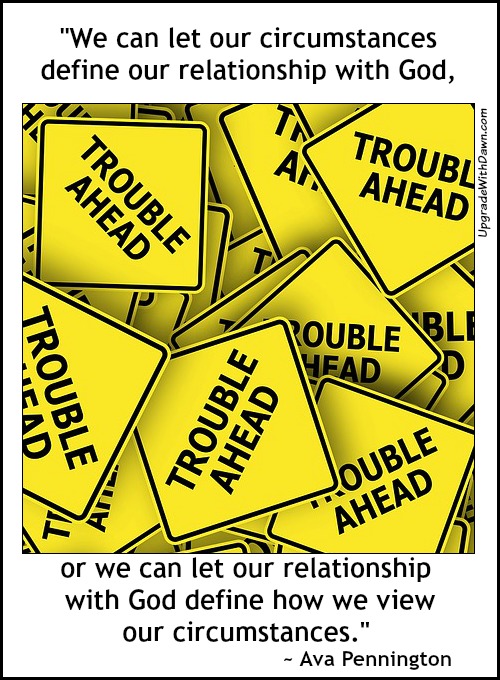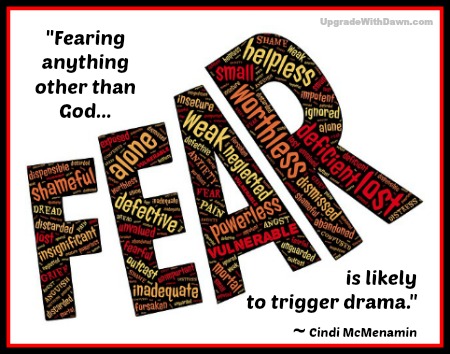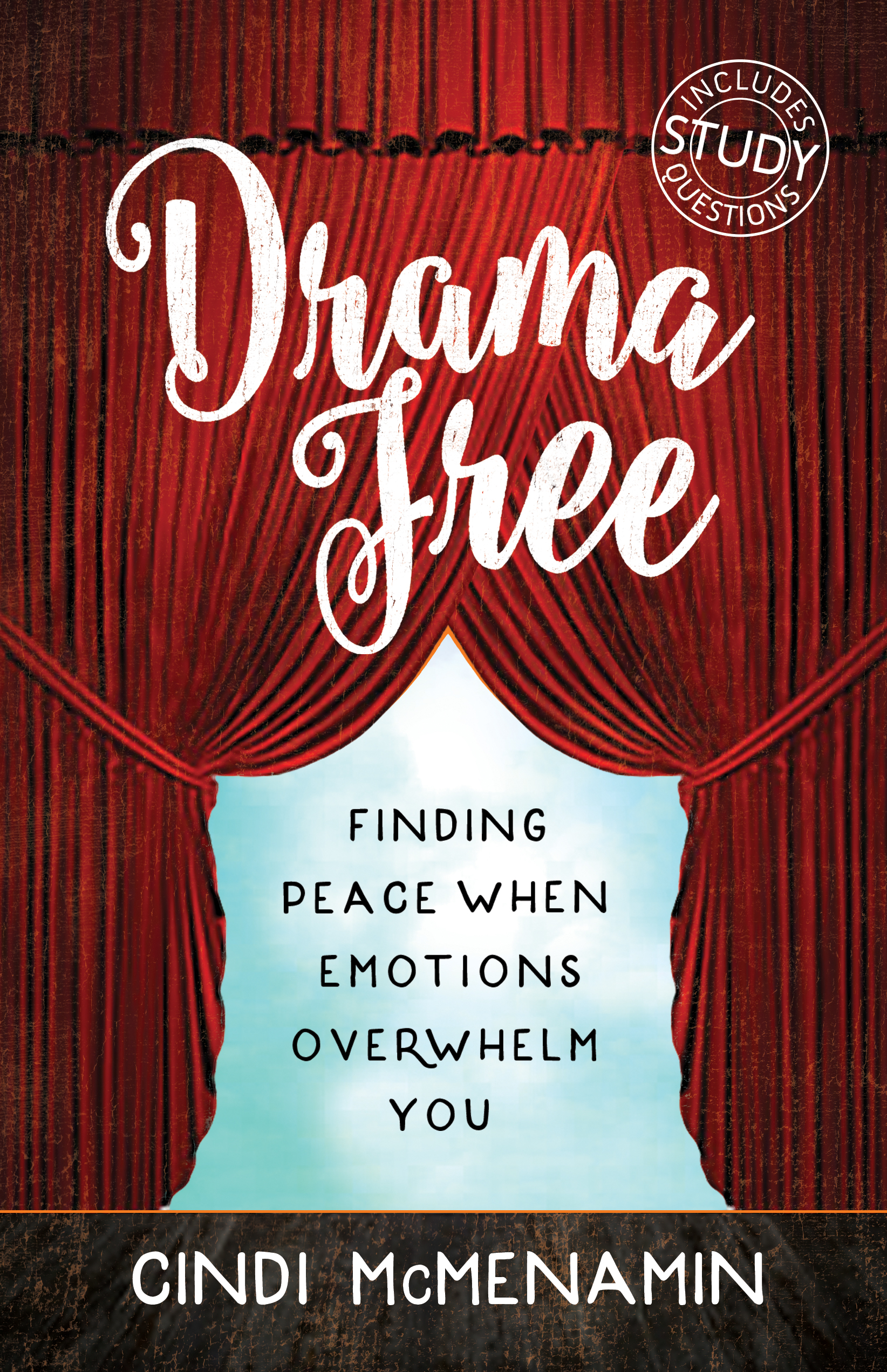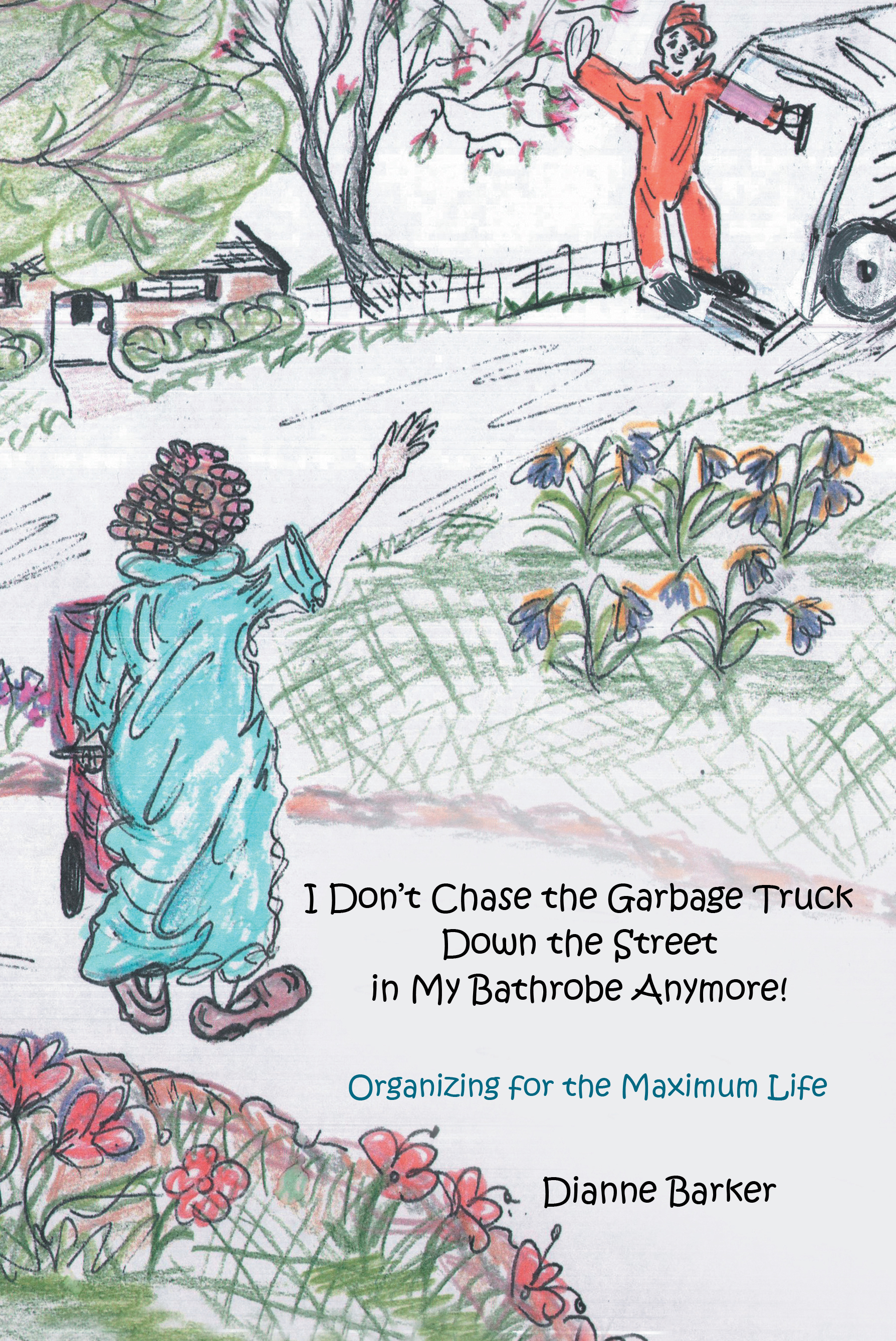Mashing My Remote Control Didn't Help
In this Spiritual Growth UPGRADE, I want to share four lessons I learned about "control."
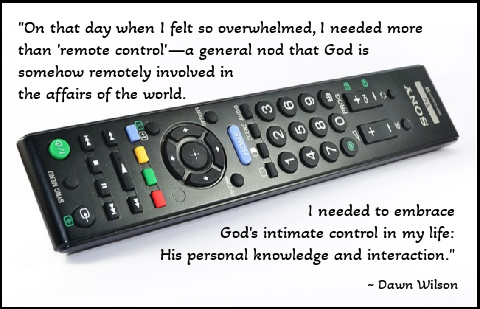 I mashed the buttons on the TV’s remote control, but nothing happened. Already stressed from bad news, I frantically mashed the buttons harder.
I mashed the buttons on the TV’s remote control, but nothing happened. Already stressed from bad news, I frantically mashed the buttons harder.
I knew I was upset and disappointed by my circumstances, but I didn’t realize how angry I was too. In my anger, I fiercely tried to “will” the remote to do my bidding.
“I will conquer you, you stupid thing!”
But nothing I did worked.
My husband asked me a simple question, and as it turned out, the remote needed new batteries (Duh!). The remote required change at its core.
Later, I took time for some heart examination. I thought about how I'd felt so out of control, and the foolish, fierce anger that erupted over a relatively small inconvenience.
In that process, I learned—or at least, was reminded of—four lessons about God.
Four Lessons When Life Feels Out of Control
1. God Is in Control.
I felt out of control, but God is never "out of control." He reigns as the sovereign God. He is in complete, absolute control.
On that day when I felt so overwhelmed, I needed more than “remote control”—a general nod that God is somehow remotely involved in the affairs of the world. I needed to embrace God’s intimate control in my life: His personal knowledge and interaction.
God is the potter and I am the clay (Romans 9:19-24). I may feel God is making mistakes or being harsh as He shapes my life, but that’s just the clay speaking.
In my Spirit-indwelled heart I know:
- The Potter knows what He is doing;
- He knows why He chose me, a lump of clay; and
- He knows what tools He will use to shape me.
God is God. I am not. God works “all things according to the counsel of His will” (Ephesians 1:11). He rules over all His creation, and that includes me.
2. God Has a Plan.
When I feel out of control, I often scramble to make plans to alleviate my anxiety. In that stress, I’ve sometimes choose a wrong direction and only get into more trouble.
God, who created us, wants to guide us. His plan includes direction for our lives.
As a young woman, I memorized Proverbs 3:5-6. I knew that I could trust God to direct my life, to show me which path to take. When we choose our plans rather than His, there’s no guarantee for the results.
God’s plan may not look like ours, no matter how hard we "mash the buttons" of our plans. His ways are not our ways (Isaiah 55:8-9).
That’s why James urges us to ask for wisdom (James 1:5). We need to ask, and then we need to expect God to give us wisdom. We need to be alert and sensitive to the Holy Spirit’s direction.
We are to move forward one step at a time as our Father God gives more light. Then we can be a good steward of our time and resources.
[Let me clarify one thing. We can make plans, but we need to be prepared and willing for God to hijack our plans, which may look nothing like our own. We need to plan wisely, but hold those plans loosely. God gets the last word (Proverbs 16:9).]
3. God Is with Us.
God promised His presence to His people. When we feel overwhelmed, we need to remember that our Father has not left us.
In His presence, we will stop being dismayed or overwhelmed, because His ever-present wisdom and power come to our aid.
Father God sees us, knows all about us, and cares about our struggles.
All three members of the trinity are present in our lives! The Father says, “Fear not, for I am with you” (Isaiah 41:10a). The Son, Jesus, says, “Lo, I am with you” (Matthew 28:20). The Holy Spirit is our ever-present Helper (John 14:17).
4. God Designed Our Suffering.
This is a hard point but a crucial one.
When we are overwhelmed by circumstances, especially in times of deep struggle or suffering, we need to consider God’s hand in our pain.
Our God has lessons for us in our laments. He does not design our circumstances willy-nilly without specific purpose. Our God is a God of order, not haphazard thoughts, words, or actions.
So what is He doing in our overwhelming circumstances?
First, God wants to give us a greater vision.
God wants us to see and understand who He is and what He can do. He wants to teach us how to be more like Jesus, and the Holy Spirit has a big role in conforming us to the image of the Son.
God is not put off by our anger or frustration; and He also does not ignore our tears. He understands our weakness—that we are “dust” (Psalm 103:13-14). But He wants to lift us higher and give us a vision of His work in us.
As we embrace what He is teaching us, we will have more potential to give Him glory!
Second, God wants to change us.
We want to fix our brokenness. We may try many “fixes” in the process, but God wants to smash our self-effort so we will lean into and submit to His process of transformation.
We can resist His design in our struggles and suffering: becoming bitter, angry, and perhaps paralyzed in coping with our pain.
Or we can respond to God’s design with trust and contentment, believing our Father—while sovereign in all things—is wise, loving, good, and kind.
In light of eternity, our temporal problems bear a different weight. Our present troubles won’t last very long in terms of eternity. In the moment, His hand may feel heavy, but it is working toward eternal purposes we may not currently see or understand.
“For our light and momentary troubles are achieving for us an eternal glory that far outweighs them all” (2 Corinthians 4:17).
What do we make of the tough circumstances that challenge us, maybe threaten to undo us?
Tim Challies wrote about God's providencial actions in our lives in his post, "If God Would Outsource His Sovereignty." Challies wrote about a hypothetical scene in which an angel appeared to a group of Christians in church. The angel said the Lord had told him to distribute some "gifts of His providence." Everyone wanted the gifts of vast sums of money, rare talents, and high position. No one wanted the gifts of quadriplegia, grievous loss, infertility, widowhood, persecution, etc.
If we could choose our circumstances, we would likely never pick painful, hurtful, hard things! But God . . .
Challies concluded that as we receive gifts of providence from God's hand,
"we can rest assured that in the life of the Christian there are not two classes of providence, one good and one bad. No, though some may be easy and some hard, all are good because all in some way flow from His good, Fatherly hand, and all in some way can be consecrated to His service."
We might never choose painful, hurtful, hard things, but God does choose these circumstances for us because of their potential to transform us.
I encourage you to think about the four lessons above in light of your current struggle.
Personalize them:
- God is in control of my circumstance;
- God has a plan for me in my circumstance;
- God is with me throughout this circumstance; and
- God designed my suffering in this circumstance—even when it gets hard—for my good and His glory.
As I meditated on these lessons, I found my feelings changed, even though my circumstance did not.
It felt like putting a new battery into my remote control.
Are you overwhelmed today? Is there a struggle—financial stress, a physical issue, a relationship struggle, mental confusion, great loss, etc.—that consumes your thoughts and feelings?
Dawn Wilson, founder and President of Heart Choices Today, is a speaker and author,  and the creator the blog, Upgrade with Dawn. She is a contracted researcher/reviewer for women's teacher and revivalist, Nancy DeMoss Wolgemuth at Revive Our Hearts, and is a regular columnist at Crosswalk.com. She and her husband Bob live in sunny Southern California, and Dawn has traveled with Him in Pacesetter Global Outreach. They have two grown, married sons, three granddaughters and a rascally maltipoo, Roscoe.
and the creator the blog, Upgrade with Dawn. She is a contracted researcher/reviewer for women's teacher and revivalist, Nancy DeMoss Wolgemuth at Revive Our Hearts, and is a regular columnist at Crosswalk.com. She and her husband Bob live in sunny Southern California, and Dawn has traveled with Him in Pacesetter Global Outreach. They have two grown, married sons, three granddaughters and a rascally maltipoo, Roscoe.
Graphic adapted, courtesy of Mohamed Nuzrath at Pixabay.
 Post a Comment → Posted on
Post a Comment → Posted on  Thursday, April 20, 2023 at 1:28PM
Thursday, April 20, 2023 at 1:28PM 




